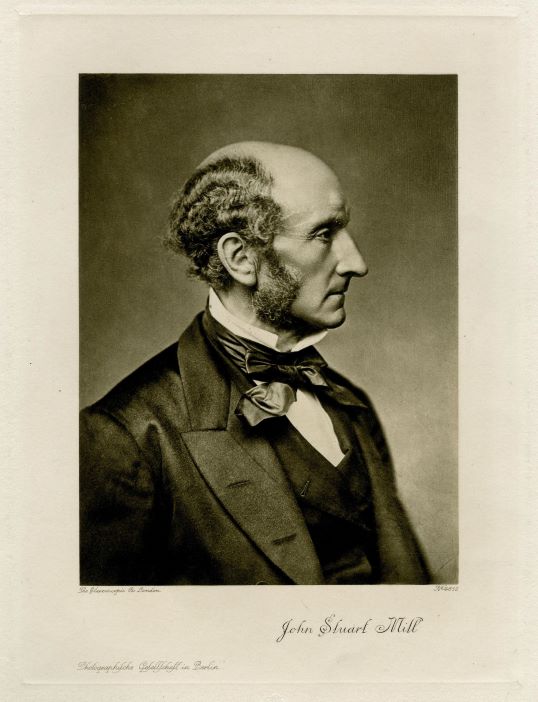Liberty Matters
Mill and Experimentation

In his famous chapter on the Stationary State in his Principles of Political Economy,[59] Mill remarked that while present social and economic arrangements had much to recommend them in terms of generating economic growth, they still left much to be desired:
I confess I am not charmed with the ideal of life held out by those who think that the normal state of human beings is that of struggling to get on; that the trampling, crushing, elbowing, and treading on each other’s heels, which form the existing type of social life, are the most desirable lot of human kind, or anything but the disagreeable symptoms of one of the phases of industrial progress.[60]
Hence his willingness to examine additional forms of social arrangements.
In my last posting I remarked on one affinity between Mill and experimental economics: like experimental economists who have noted empirical regularities that emerge in language and other nonmonetary interactions, Mill worked in a tradition that allowed for nonmonetary incentives to influence human actions.
Here, I point to an additional affinity. Mill’s economics was capacious enough to allow for actual experimentation in advance of hard and fast conclusions about the efficacy of one social arrangement over another. While, as I remarked in my last posting, Mill recognized that distributional changes would be associated with consequences for output and economic growth, the size of these consequences was as yet an empirical matter. In his Principles of Political Economy he concluded that while there was on balance much to recommend the system of private property that yielded so much economic growth in 19th-century England, experiments might be conducted in order to see whether other arrangements might also work. He laid out at least three conditions for these experiments. They must be adopted voluntarily by individuals who without coercion opted to try them out. They must be tried on a “moderate scale.”[61] And, if they worked, they were to spread voluntarily, by example.
Endnotes
[59.] Principles, Book IV: Influence of the progress of Society on Production and Distribution, Chap. VI: "Of the Stationary State" </titles/243#lf0223-03_label_893>
[60.] Principles, Book IV: Influence of the progress of Society on Production and Distribution, Chap. VI: "Of the Stationary State" </titles/243#lf0223-03_label_896>
[61.] Principles, Book II: Distribution, Chap. I: Of Property </titles/102#Mill_0223-02_522>. The full quote is:
With regard to this, as to all other varieties of Socialism, the thing to be desired, and to which they have a just claim, is opportunity of trial. They are all capable of being tried on a moderate scale, and at no risk, either [214] personal or pecuniary, to any except those who try them.
Copyright and Fair Use Statement
“Liberty Matters” is the copyright of Liberty Fund, Inc. This material is put on line to further the educational goals of Liberty Fund, Inc. These essays and responses may be quoted and otherwise used under “fair use” provisions for educational and academic purposes. To reprint these essays in course booklets requires the prior permission of Liberty Fund, Inc. Please contact oll@libertyfund.org if you have any questions.